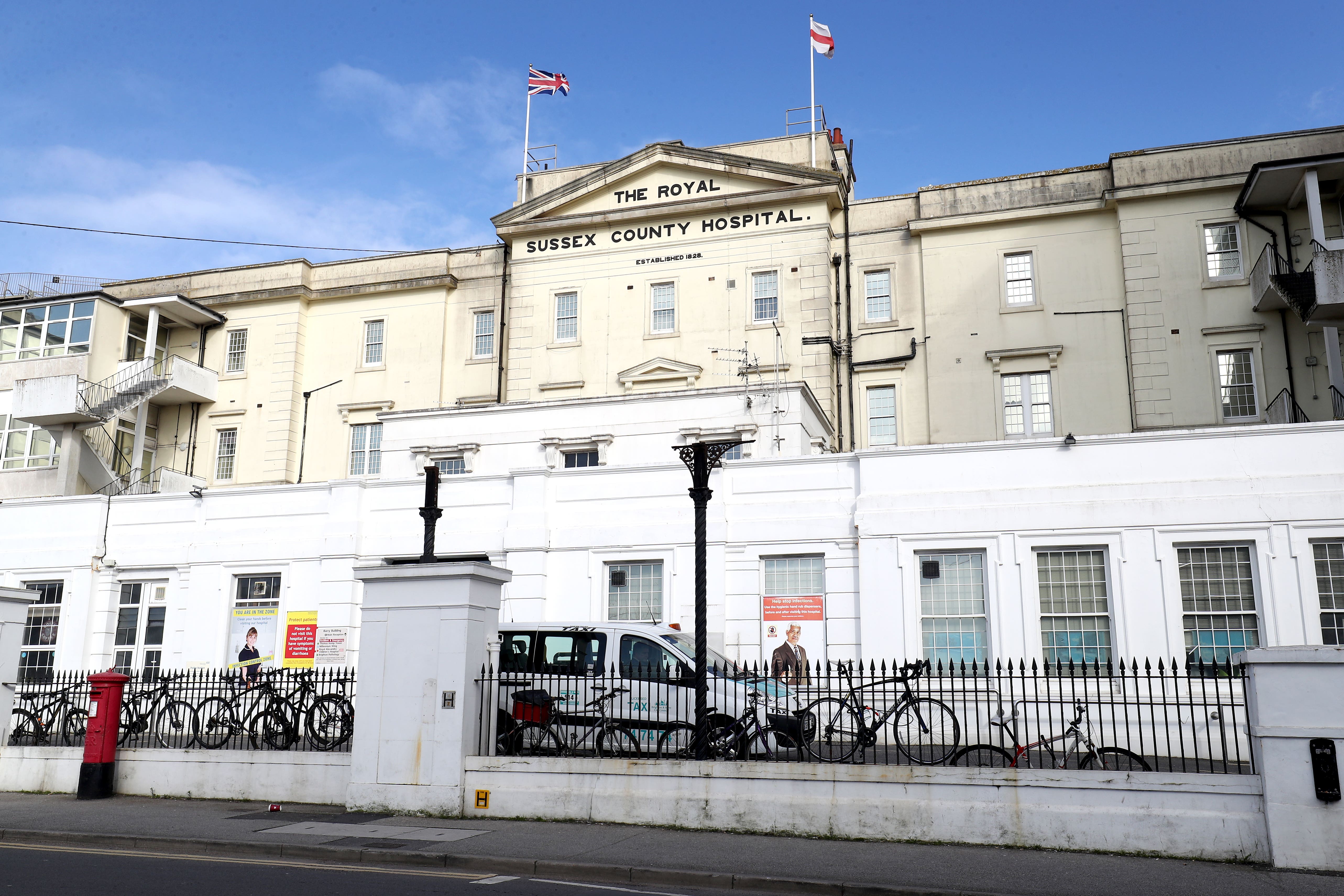Brighton hospital must address culture and leadership issues, inspectors warn
Inspectors found an ‘improving culture’ during an unannounced visit in August but that more needs to be addressed at an ‘urgent pace’.

Bosses of a Brighton hospital must address issues over its culture and leadership at an “urgent pace”, health inspectors have warned.
The Care Quality Commission (CQC) revealed the culture in surgery theatres at Royal Sussex County Hospital was “still poor”, and that staff did not feel they could raise concerns without “fear of reprisals”.
The unannounced visit in August 2023 found an “improving” culture on the wards where staff felt respected and supported, but inspectors also heard examples of bullying in the surgery unit from 30 members of staff.
Not all theatre staff felt respected, supported, and valued. Staff in theatres did not feel they could raise concerns without fear of reprisals
CQC bosses said improvements had been made in some aspects of surgery at the hospital since inspections in 2021 and 2022, resulting in the unit being raised from an “inadequate” rating to “requires improvement”.
The findings come as a review commissioned by University Hospitals Sussex NHS Foundation Trust, which runs the hospital, discovered instances of bullying and harassment and a further “culture of fear” regarding the top leadership team earlier this month.
The CQC inspection report published on Wednesday February 14, focused on surgical services and medical care.
It said: “Not all theatre staff felt respected, supported, and valued. Staff in theatres did not feel they could raise concerns without fear of reprisals.
“However, there was an improving culture on the wards where staff felt respected, supported and valued. Staff were focused on the needs of patients receiving care across all environments.
“We spoke with 30 members of staff who gave us examples of bullying in the unit with a divided workforce and a perception that some staff were treated differently to others.
“Staff told us they were placed in difficult circumstances daily and they did not feel listened to when they reported these concerns.”
At this inspection whilst we found improvements in some areas, other issues remained. Leaders must address these issues at a much more urgent pace
Concerns were also raised over waiting times getting worse and cancellations of surgery, due to staffing and capacity in theatres.
Inspectors said one patient they spoke to had her orthopaedic surgery cancelled eight times in a row.
The trust overall was put in the lowest 25% of NHS acute trusts in the South East for national cancer waiting time data, achieving 66% for two-week waits, compared to the 93% national target.
CQC inspectors also reviewed other hospitals managed by the trust, Princess Royal Hospital in Haywards Heath, St Richard’s Hospital in Chichester and Worthing Hospital, with the trust overall maintaining a rating of “requires improvement”.
Overall, CQC deputy director of operations in the South, Neil Cox, said: “Following our previous inspection of University Hospitals Sussex NHS Foundation Trust, we told them where they needed to make improvements especially around leadership and culture.
“At this inspection whilst we found improvements in some areas, other issues remained. Leaders must address these issues at a much more urgent pace.
Staff were consistently asking people about their personal, cultural and religious needs and understood how to incorporate this into their care
“We found a wide disconnect in the relationship between staff and senior leaders and how they were working together. These issues were clearly having a knock-on effect on the quality of care being delivered to people using services.”
He added there were some improvements into the culture in theatres raised in previous inspections and that the trust was taking steps to support staff speaking up despite low staff morale and bullying.
But the health boss also said inspectors saw some “exceptionally caring” staff go above and beyond to ensure people had positive experiences in hospital.
he CQC inspection team found frontline teams giving good patient care, treating patients with kindness and respect, and working well together. Those are fundamental strengths, and it is to their enormous credit that they are giving such good care in such difficult circumstances
Mr Cox said: “We saw staff taking home one person’s clothes and washing them as they had no family, ensuring someone’s favourite biscuits were available despite it not being a standard item, and bringing in nail polish so someone’s relative could paint their nails for them.
“Staff were consistently asking people about their personal, cultural and religious needs and understood how to incorporate this into their care.”
Responding to the report, Dr George Findlay, chief executive of University Hospitals Sussex NHS Foundation Trust said health leaders are “working hard” to respond to concerns.
Dr Findlay said: “The CQC inspection team found frontline teams giving good patient care, treating patients with kindness and respect, and working well together. Those are fundamental strengths, and it is to their enormous credit that they are giving such good care in such difficult circumstances.
“But the CQC also found too many things that we need to do better – from more consistent record-keeping to training, to managing pressures on overstretched staff, improving our culture, and making colleagues feel more confident to speak up. We accept those challenges and we are working hard to put them right.”
Bookmark popover
Removed from bookmarks